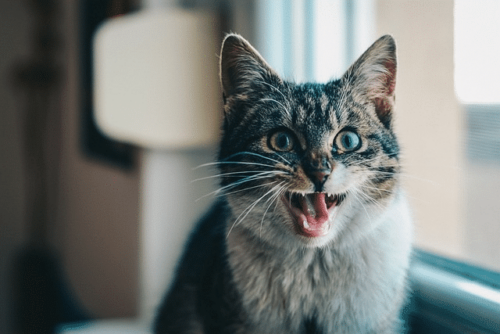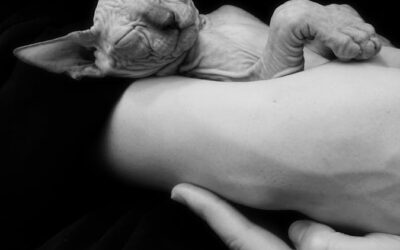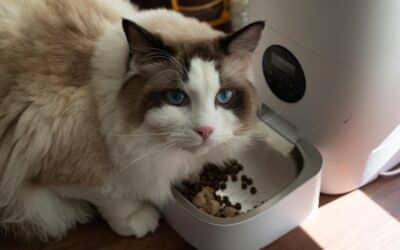How many teeth does a cat have? Do you know?
Cats have long been highly regarded as one of the most popular household pets, loved by people worldwide for their cuteness and affectionate personality. But do you know how many teeth your feline friend has? Cats are carnivorous animals known for their sharp teeth and claws, making them adept at hunting prey. In this blog post, we will delve deep into the number of teeth that cats have, the purpose of their teeth, and why it’s vital to take care of your cat’s teeth.
Cats, like other mammals, develop two sets of teeth in their lifetime. The first set is called deciduous teeth or milk teeth, and they usually begin to appear when kittens are two to four weeks old. Kittens grow 26 deciduous teeth, and they will begin to lose them between three and six months of age to be replaced by their permanent teeth. Permanent teeth are made up of incisors, canines, premolars, and molars. Adult cats have a total of 30 permanent teeth, which can vary based on the breed.
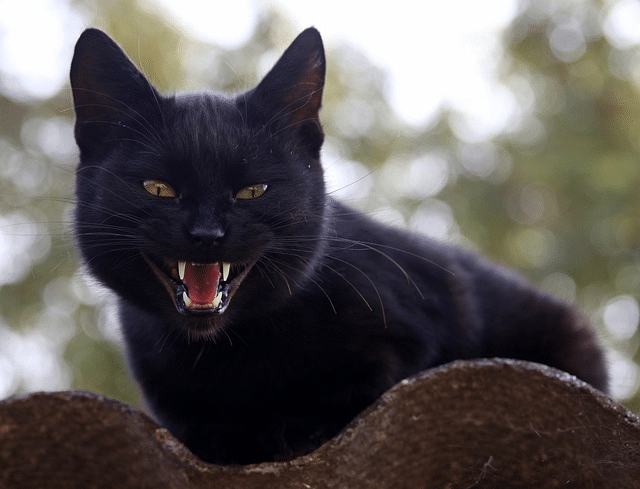
Incisors are the front teeth used for grabbing and biting. Cats have six upper and lower front teeth (incisors) that sit at the front of their mouth. Canines, an essential tool for catching, grabbing, and holding prey, are the sharpest teeth of a cat. There are four canine teeth, two on the top and two on the bottom. They are so sharp that they usually bleed when a cat bites hard material such as bones.
The premolars and molars, also called the carnassial teeth, are used by cats to chop, slice, and crush their prey’s bones and flesh. They have six upper and six lower premolars, and their molars are less common since cats typically don’t require heavy-duty grinding teeth. The premolars are two-rooted and have serrated edges that help cut meat easily. Most cats will lose one or more teeth during their lifespan due to periodontal disease or tooth resorption.
[divilifeshortcode id='7986']
Pet owners must care for their cat’s teeth to keep them healthy and free from dental problems such as gingivitis and tartar buildup. A cat’s mouth harbors several types of bacteria, and if their teeth are not brushed regularly, it can lead to harmful bacterial overgrowth. Additionally, tartar buildup can lead to inflammation of the gums, tooth decay, and, ultimately, tooth loss. Brushing your cat’s teeth, feeding them a nutritious diet, and scheduling regular veterinarian check-ups are essential practices to promote good cat dental health.

How Many Teeth Does A Cat Have And How Do I Care For My Cat’s Teeth?
As cat owners, we want our furry feline friends to stay healthy, happy, and comfortable. We take them to the vet, feed them the right food and give them plenty of love and attention. However, we often forget about one crucial aspect of their health – their teeth. Unlike dogs, cats are much better at hiding their dental issues, making it harder to catch them early and treat them. Hence, it is essential to include dental care in your cat’s health routine to keep their teeth healthy and prevent severe dental problems.
Regular Dental Exams:
The first step towards ensuring your cat’s dental health is to take them for regular dental exams. A dental exam will allow your vet to check for any signs of a dental disease such as gingivitis, periodontal disease, and tooth decay. The vet will clean your cat’s teeth and gums, removing any tartar buildup, assess their dental health, and recommend any necessary treatment.
Brushing Your Cat’s Teeth:
Brushing your cat’s teeth is one of the essential habits that you can establish for their dental health. While it may sound challenging, you can train your cat to get used to brushing their teeth regularly. Start by introducing them to the toothbrush and toothpaste, letting them lick it and get familiar with its taste and texture. Eventually, you can start brushing their teeth gently, starting with the front teeth and gradually move to the back.
Healthy Diet:
Diet can play a significant role in your cat’s dental health. Providing your cats with a balanced and nutritious diet that meets their nutritional needs can promote healthy teeth and gums. Soft food can stick to your cat’s teeth, leading to plaque buildup, while hard food can help scrape away tartar. Including dental chews and treats can help clean your cat’s teeth and reduce the buildup of plaque and tartar.
Water Additives and Mouthwash:
Adding a few drops of water additives or mouthwash to your cat’s water bowl can help prevent plaque buildup and freshen their breath. These additives are formulated to promote healthy teeth and gums, reduce the growth of harmful bacteria in your cat’s mouth while preserving the pH levels of the saliva.
Regular Playtime:
Regular playtime can promote your cat’s dental health by stimulating their gums and allowing them to exercise their jaw muscles. Chew toys or toys that encourage biting and gnawing can help promote dental health, strengthen their teeth, and reduce the buildup of plaque and tartar.
Caring for your cat’s teeth is a vital aspect of their overall health and wellbeing. Incorporating dental care in your cat’s daily routine can help prevent dental diseases, ensure healthy teeth and gums, and promote better oral health. Remember always to take your cat for regular dental exams, brush their teeth regularly, provide them with a balanced diet, add water additives to their water bowl, and promote regular playtime. With proper dental care, your furry friends can keep their teeth healthy and live a long, happy, and healthy life.
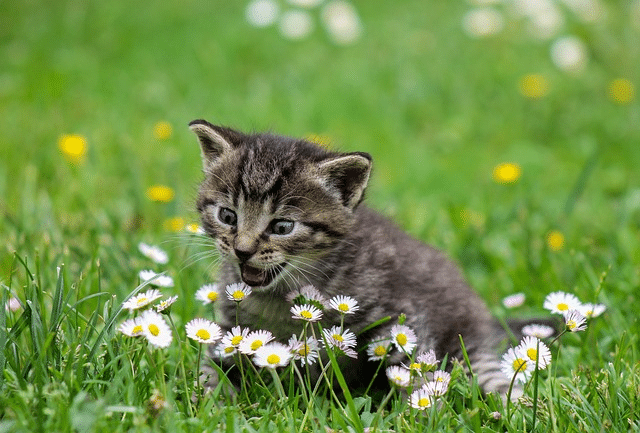
Maintaining Your Cat’s Dental Health: A Guide to the Right Diet
As a cat owner, we know how important it is to keep our feline friend healthy, hydrated, and happy. One of the most overlooked aspects of their healthcare is their dental hygiene. A lot of cat owners think that just feeding them dry kibble is enough to keep their teeth clean, but that’s just not the case.
Wet Food
One of the best ways to keep your cat’s teeth healthy is to switch to wet food. Wet food is higher in moisture content than kibble so cats need to chew their food more, which helps scrape the plaque and tartar buildup off their tiny teeth. Additionally, this diet helps protect the gums from getting infected. It’s also a great idea for ensuring your cat stays hydrated.
Raw Food
Raw food is a great way to naturally clean your cat’s teeth. The texture of raw meat requires your cat to use their teeth in a natural way to grip, rip, and shred their food, which helps scrape off tartar and plaque buildup from their teeth. Additionally, raw food is rich in protein that helps keep the cat’s immune system strong and healthy.
Dry Food with Added Enzymes
Even though dry food is not as good for cleaning teeth as wet or raw food, it is still a popular way of feeding cats. This can be easily remedied by incorporating some good quality, enzyme-rich dry cat food into your cat’s diet. This food helps break down plaque and bacteria in the cat’s mouth and contributes to improved dental hygiene with frequent feedings.
Treats
Although not a main part of their diet, treats provide an additional way to maintain your cat’s dental hygiene. There are dental treats designed to combat tartar and plaque formation in a cat’s mouth. These treats work by scraping off the buildup and preventing it from recurring. Just make sure you don’t feed your cat too many treats, as too many calories and sugars can have detrimental effects on your cat’s overall health.
Brushing
A final note on maintaining good dental hygiene is to brush your cat’s teeth regularly. Even the best diet doesn’t replace regular brushing that can ensure the cat’s teeth are free of food particles and plaque.
Keeping your cat’s teeth clean shouldn’t be an afterthought. By providing the right diet and dental care, you can ensure your feline friend has a healthy and active future. Wet food, raw food, dry food with added enzymes, and dental treats can all be incorporated into your cat’s diet to improve their dental hygiene and overall health. Remember, it’s crucial to consult with your vet before making any significant changes to your cat’s diet. With regular cleaning and nutritious food options, you can keep your cat’s teeth clean and prevent problems like gum disease and tooth loss.

Kate’s K9 Pet Care
Kate’s K9 Pet Care, your pet needs are always taken care of. From meticulously planned walks and playtime trips around the city, so your pet stays active and happy – you can trust the experts at Kate’s K9 Pet Care. If this is something that sounds appealing for you and your furry friend, give us a call today to discuss further options! Easy planning and no-hassle pricing make it simple to set up a schedule that works for everyone involved at Kate’s K9 Pet Care. Don’t let this opportunity pass up – start pampering you pup with the best care in town!
Conclusion
In summary, cats have 30 permanent teeth, including incisors, canines, premolars, and molars, used for hunting and feeding. Caring for your cat’s teeth is crucial to ensure they remain healthy and free from dental problems. Keep your feline friend healthy and happy by regularly brushing their teeth, feeding them a nutritious diet, and scheduling routine check-ups with the veterinarian. Understanding and taking good care of your cat’s dental health will ensure they maintain a healthy and balanced life.

